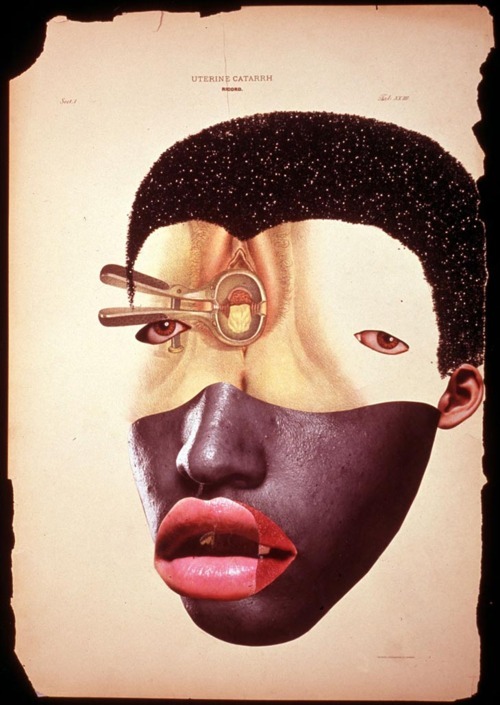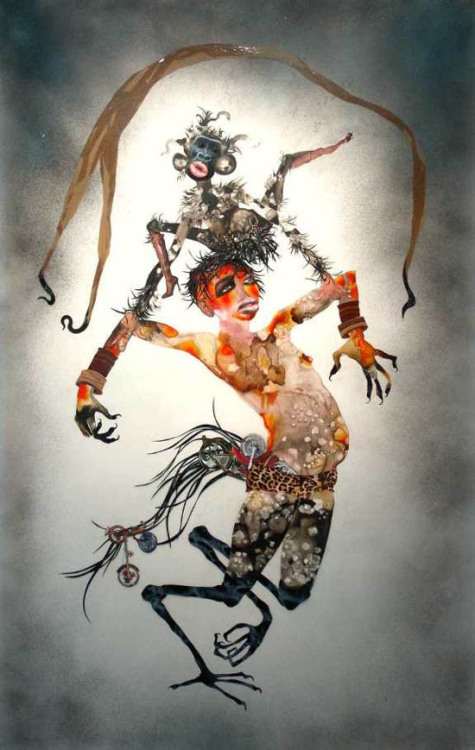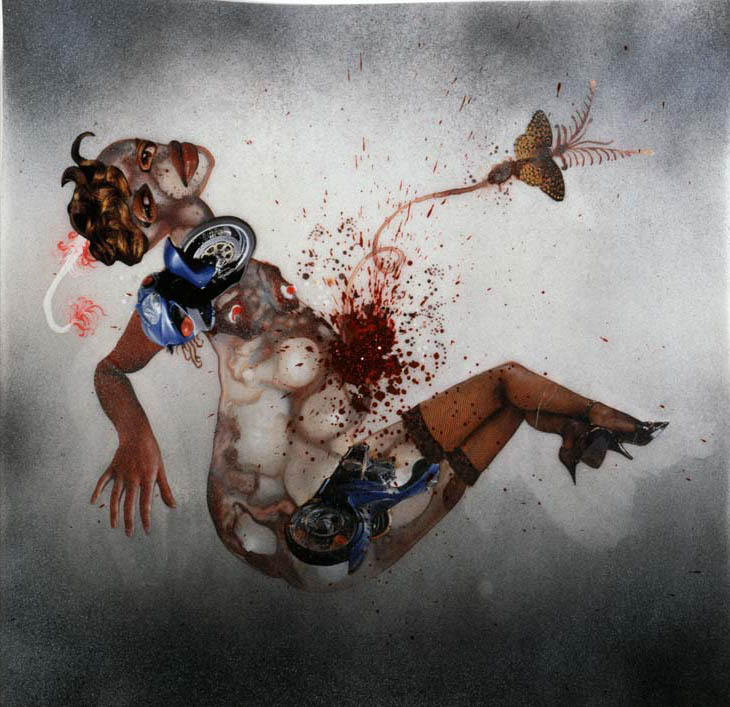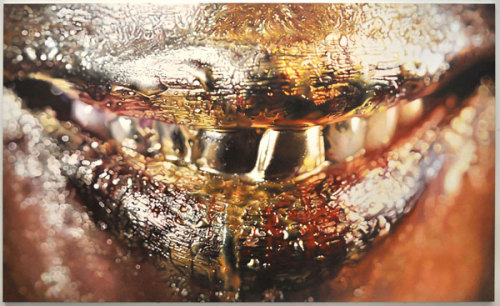
Wangechi Mutu is a Kenyan artist from the Kikuyu tribe with degrees from Parsons, Cooper Union and Yale and has been exhibited in some of the most influential galleries in the world.


'Yo Mama'
“Some of these figures stand for certain ideals and hopes that I feel are necessary to tackle shared challenges that stand in the way of ‘our’ humanity, cultural understanding and coexistance. So for example, the figure in ‘Yo Mama’ is this fierce, fictional planet-hopping warrior who is obviously traversing different histories and lands annihilating the huge serpent (as in the biblical snake, the phallus, a symbol of Christian patriarchy) with her heel. I try to express elements of female bravado and raise questions about ethnic identification whilst creating a mythological/futuristic character that confronts the lengthy history of these shared dilemmas. The stilettos appear often in my work, especially the collages. I have contradictory reasons for using them — they’re weapons, prosthetics, embellishments, armor, and obviously, titillating power symbols. High heels are the quintessential heightening apparatus that constrains and deforms the body whilst functioning as an indicator of modernity, urbanization and ‘foreign’ ideals of beauty.”


Sprout


Wangechi Mutu observes: “Females carry the marks, language and nuances of their culture more than the male. Anything that is desired or despised is always placed on the female body.” Piecing together magazine imagery with painted surfaces and found materials, Mutu’s collages explore the split nature of cultural identity, referencing colonial history, fashion and contemporary African politics. In Adult Female Sexual Organs, Mutu uses a Victorian medical diagram as a base: an archetype of biased anthropology and sexual repression. The head is a caricatured mask – made of packing tape, its material makes reference to bandages, migration, and cheap ‘quick-fix’ solutions. Mutu portrays the inner and outer ideals of self with physical attributes clipped from lifestyle magazines: the woman’s face being a racial distortion, her mind occupied by a prototypical white model. Drawing from the aesthetics of traditional African crafts, Mutu engages in her own form of story telling; her works document the contemporary myth-making of endangered cultural heritage.
Quote from: Merrily Kerr, Wangechi Mutu's Extreme Makeovers, Art On Paper, Vol.8, No. 6, July/August 2004


Wangechi Mutu’s collages seem both ancient and futuristic; her figures aspire as a super-race, by-products of a troubled and imposed evolution. In Cancer of the Uterus, her figure is an ominous goddess; pasted over a pathology diagram, her portrait is diseased at the core. Mutu uses materials which make reference to African identity and political strife: her dazzling black glitter is an abyss of western desire, which allude to the illegal diamond trade and its consequences of oppression and war. From corruption and violence, Mutu creates a glamorous beauty; her figures empowered by their survivalist adjustment to atrocity, made immune and ‘improved’ by horror and being victims. - Saatchi-gallery.co.uk





 ]
]
Wangechi Gold Series by Marilyn Minter
No comments:
Post a Comment